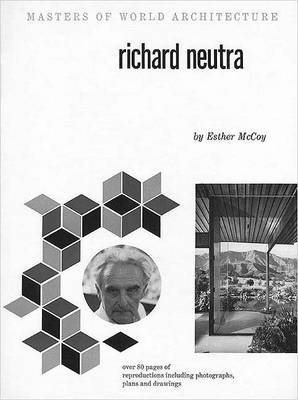Masters of World Architecture
1 total work
Richard Neutra (1892-1970) is considered one of the twentieth century's most influential architects. Born in Vienna, his career occurred at a critical moment in the history of the modern movement. His early inspiration was provided by pioneering architects such as Adolf Loos and Frank Lloyd Wright. His first major commission -- Lovell House -- built in Los Angeles in 1929, just six years after his arrival in the United States, is known as one of the landmarks of modern architecture. He is recognized for his open and innovative designs, his extensive use of glass allowing indoor and outdoor spaces to flow freely together, and his application of industrial techniques to architecture. He made major contributions to urban planning, was the author of several books, including Survival through Design, and won over fifty awards for architectural designs. Neutra established new aesthetic standards and there is currently a tremendous renewal of interest in his legacy. This concise overview of his achievements is the essential introduction to his work and philosophy.
